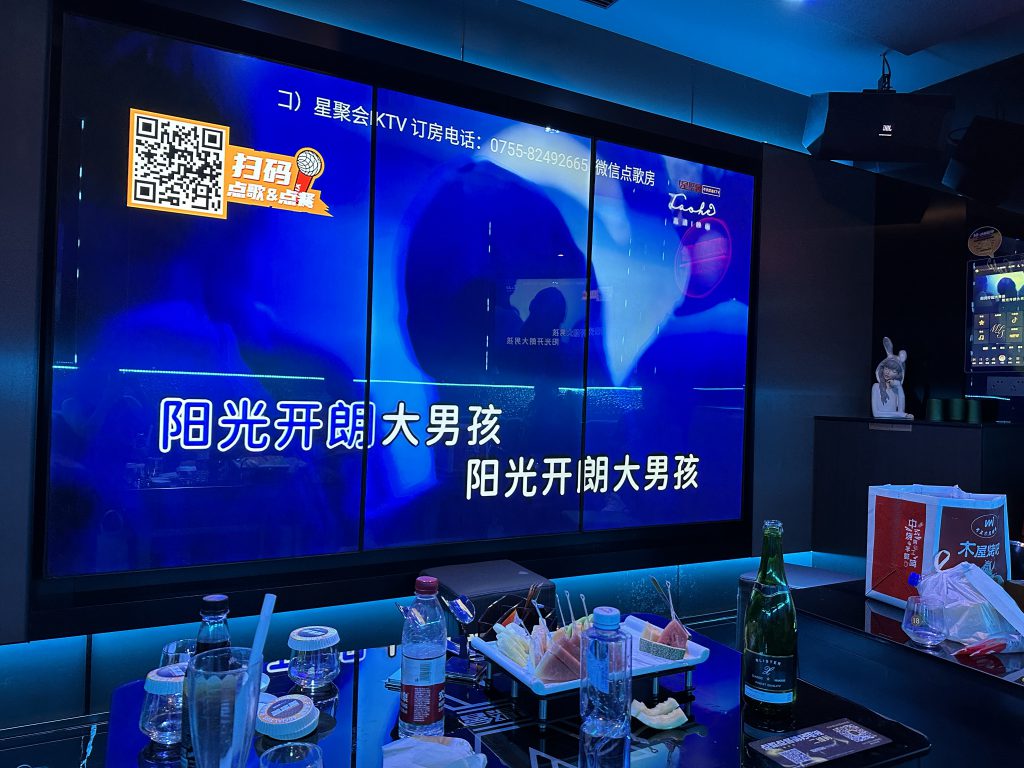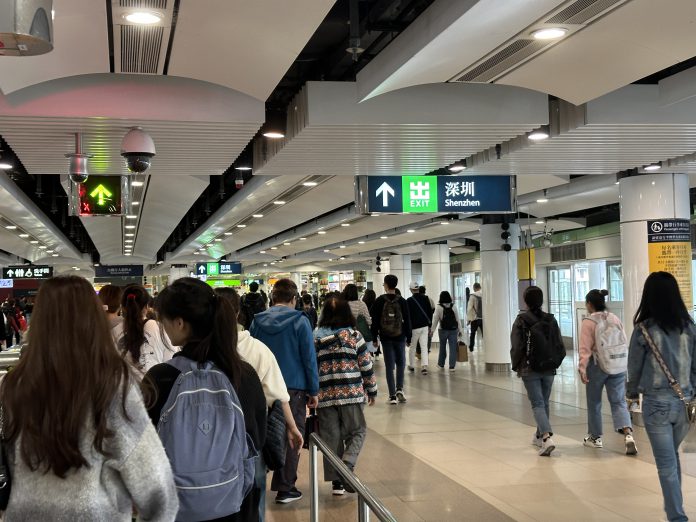Students in Hong Kong spend money in Shenzhen for cheaper prices and more diverse choices
By Celina Lu
University student Shay Xie Chengxi, who lives in Fanling, goes to Shenzhen with his friends every weekend.
“I go to Shenzhen for a day of fun. It costs me about RMB ¥300 (US $41.47) to watch a movie, dine out and sing karaoke. If I do the same things in Hong Kong, it probably costs me RMB ¥500 (US $69.11),” the 23-year-old student says.
Shay shares that a hotpot meal with five people in Shenzhen costs about RMB ¥100 (US $13.82) per head, which is half the price of a meal in Hong Kong.
“In Hong Kong a hotpot meal costs at least RMB ¥200 (US $27.65). Pricing is a strong reason for me to go to Shenzhen. Also, I eat cuisine that I cannot find in Hong Kong, such as Xinjiang food like charcoal grilled beef and lamb,” he says.

Another university student, Felix Shangguan Yuqian, also goes to Shenzhen every weekend.
“Dining out is the highlight of my week. I choose to go to Shenzhen to spend money because of cheaper cost and better quality of service,” the 23-year-old student says.
“You can get a delicious meal with two to three dishes in Shenzhen for RMB ¥40-50 (US $5.53-6.91) if you order takeout, and it usually only costs RMB ¥100 (US $13.82) if you go to a restaurant. But in Hong Kong, it costs you RMB ¥150-200 (US $20.73-27.65) for dining in,” he says.
“About the quality of service, there’s usually no time limit for dining in Shenzhen, and the waiters are more polite,” he adds.
Other than eating out, Shangguan also has his hair cut once a month in Shenzhen.
“A simple haircut in Hong Kong costs RMB ¥60-70 (US $8.29-9.68), compared with RMB ¥20 (US $2.77) across the border,” Shangguan says.
“If you want a fine haircut at a high-end salon, it costs RMB ¥300-400 (US $41.47-55.29) in Hong Kong. But it only costs about RMB ¥100 (US $13.82) in mainland China. Colouring and perming are also more expensive in Hong Kong. And the skills of hair stylists in Shenzhen are much better,” he adds.
Apart from cheaper spending on food and services, university students also flock to Shenzhen for leisure activities.
University student Ivy Shi Yuhan visits Shenzhen at least once a week and sometimes stays overnight there.
“I usually go to Shenzhen to join role-play games, sing karaoke, play board games, have a massage or a drink with friends,” she says.

According to the data provided by the Dianping app, the per capita consumption of entertainment activities such as Live Action Role Playing (LARP) games, escape room games, KTVs, board game parlours, and massage shops in Hong Kong cost RMB ¥50-200 (US $6.91-27.65), while the price is RMB ¥30-150 (US $4.15-20.73) in Shenzhen.
“The entertainment venues in Hong Kong are relatively small and old, and prices are expensive. Unlike in Shenzhen, where pricing is cheap and the venue is more spacious and well-maintained,” the Year Two student explains.

Professor Haiyan Song from the School of Hotel and Tourism Management at the Hong Kong Polytechnic University points out cost is the major factor for people going to Shenzhen to spend.
“The living costs in Shenzhen, Guangzhou, and Zhuhai are much cheaper. The demand for consumption is determined by price, so that’s why a lot of people go to these cities instead of staying in Hong Kong,” Song says.
But Song believes the spending pattern will not last long. “When the economic situation in China improves, more tourists will come to Hong Kong. We forecast that Hong Kong will recover to the 2018 level by the end of 2025,” he says.
The Hong Kong Tourism Board (HKTB) says they will step up promotion through different strategies to attract visitors to visit Hong Kong.
“Promoting tourism through mega events and reinforcing Hong Kong’s position as the Events Capital of Asia; attracting high value-added visitors and stepping up the development of Meetings, Incentive travels, Conventions, and Exhibitions by tapping into Hong Kong’s advantage as the ‘World’s Meeting Place’,” the board says in a reply.
Edited by Cynthia Hu
Sub-edited by Liam Hordijk







































